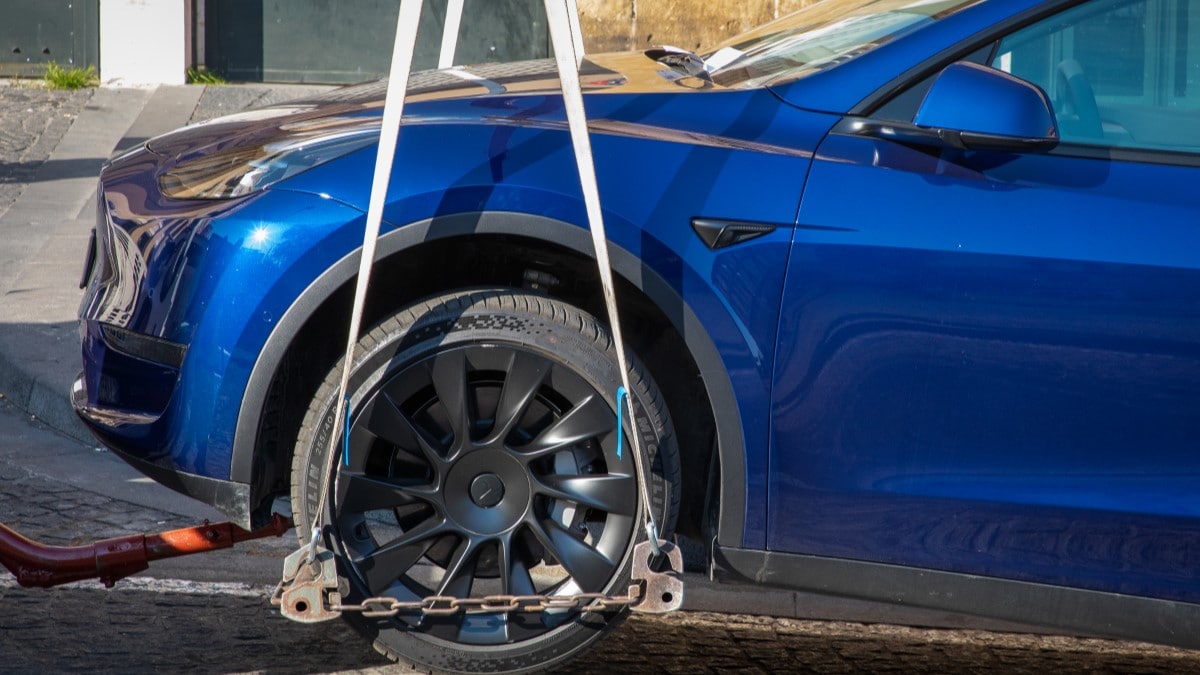Repairing a damaged Tesla costs significantly more than repairing a damaged gas-powered car. But that pattern doesn’t hold for non-Tesla EVs, according to a new study.
The numbers come from Mitchell, a company providing much of the software that powers the car insurance and auto repair industries.
Mitchell hasn’t officially released its third-quarter EV Collision Insights report, but industry publication Automotive News (AN) got an early look at the data.
Related: Cars Keep Getting More Expensive to Repair
AN reports, “Average repair costs were $5,552 for Teslas, $4,474 for non-Tesla EVs, and $4,205 for combustion vehicles in the quarter.”
On average, a damaged Tesla costs $1,347 more to repair than a damaged gas-powered car, but a damaged EV from another automaker costs just $269 more.
Tesla EVs Are a Special Case
Why the difference? It may have to do with how Tesla vehicles are designed.
Most current electric cars use a long, wide battery pack mounted under the floor, which takes up much of the same footprint as the car. It’s the most expensive part of the vehicle, and many accidents damage it.
Some automakers, knowing this, have designed modular batteries. Technicians can open them and replace just a few cells or place working cells in a new casing for less than the cost of a new battery.
Tesla batteries aren’t modular and must be replaced entirely if they are lightly damaged.
Tesla also changes the fundamental design of its vehicles on the fly. A Model 3 built three years ago and a Model 3 built today can look identical but have their frames assembled differently.
The company’s stated goal is to ultimately build a car’s entire structure in just three cast parts. That could radically simplify construction and make them more rigid in an accident. But the Tesla models on the road today can differ significantly from one another, which makes producing repair parts almost impossible.
So, the supply chain that can easily find parts for a 2019 Chevy Malibu may be unable to find basic parts for a Model 3 of the same year.
That has insurers writing off even lightly damaged Tesla examples. The company responded to the problem by launching its own insurance company just for Tesla owners. But a risk pool made up entirely of expensive-to-repair cars has its own issues.
Deep Tesla Price Cuts May Tempt Insurers to Total Cars
Ironically, the crashing price of Tesla cars may make insurers more likely to declare damaged Tesla cars a total loss.
More total losses can reduce the average repair cost because cars aren’t being repaired.
“Vehicles with lower replacement costs are more likely to be declared a total loss rather than undergoing expensive repairs, bringing down the average repair cost in the data,” AN explains.
The cost of the average EV has fallen nearly 20% so far in 2023.








